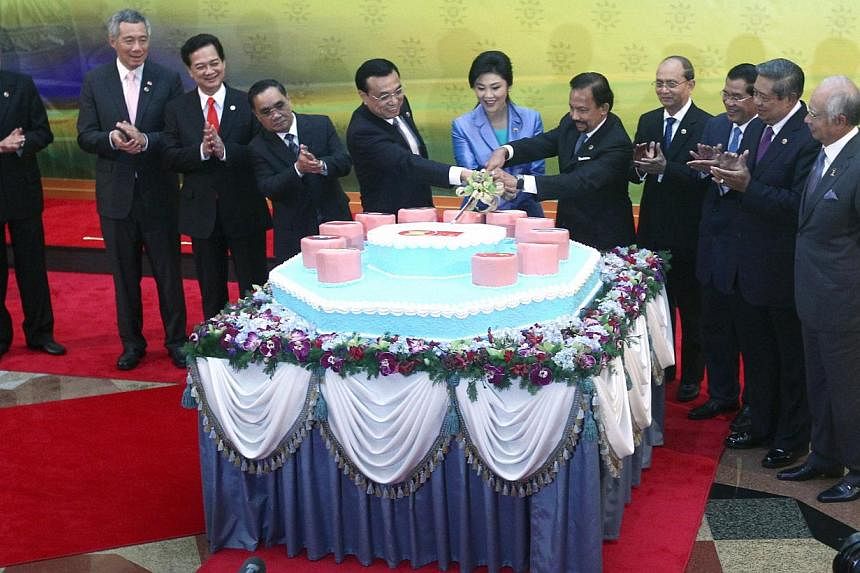THE growing strain over territorial disputes in the South China Sea is just one aspect of Asean-China relations, and parties must try not to let it colour the whole relationship, Prime Minister Lee Hsien Loong has said.
"There are many other aspects, many of them are very positive," he told Japan media group Nikkei in an interview last Wednesday, ahead of a working trip to Tokyo today and tomorrow.
These include financial assistance, human resource development and trade, said Mr Lee, adding that Asean and China are hoping to enhance their free trade agreement.
"So Asean-China relations are multi-faceted, and South China Sea is one (facet)," he said. "And we will have to try our best to make sure that it does not colour the whole relationship."
Mr Lee also said ongoing discussions between the 10-member grouping and China over a code of conduct in the South China Sea may take some time to finalise.
"I think that many countries would be very cautious about signing on to a set of guidelines which may constrain (their) freedom of action," he said. "It is natural, and therefore it will take some time to get everybody to agree to a code of conduct."
Asean already has a declaration of conduct with China, signed in 2002 to ease tensions in the South China Sea, where some of China's claims overlap with those of Asean members including Brunei, the Philippines, Malaysia and Vietnam.
Meanwhile, regional defence ministers meeting in Myanmar for the 8th Asean Defence Ministers' Meeting have also pledged solidarity amid the rising friction in the South China Sea, and called on all parties to adhere to the declaration of conduct.
Singapore Defence Minister Ng Eng Hen yesterday urged all stakeholders to "stand firm on principles" such as respect for sovereignty and territorial integrity, adhere to international law, and resolve disputes peacefully.
In a statement, he said Asean must "protect our common interests while not taking sides in territorial disputes".
These remarks come on the heels of escalating tensions in the South China Sea. On Monday, Philippine President Benigno Aquino accused China of violating the declaration of conduct by reclaiming land on the disputed Johnson South Reef.
China has also clashed with Vietnam after moving an oil rig into waters claimed by both countries, sparking anti-China riots in Vietnam last week that left 200 injured and at least two dead.
In the interview with Nikkei, Mr Lee also urged Japan to "establish relations of trust and confidence" with its neighbours, especially China and South Korea.
This would allow the country to play a more active role in keeping stability in Asia, he said.
Finalising the Trans-Pacific Partnership, an ambitious Asia-Pacific trade pact stuck in its final stages by disagreements including between Japan and the United States, will also give Japan a fuller role in the regional economy and boost its own economic revitalisation, Mr Lee added. "I hope we will be able to wrap it up this year, otherwise, we will miss the American timetable and we may be into a new president," he said.
Mr Lee is in Japan this week to attend the International Conference on the Future of Asia and meet senior Japanese government and business leaders.
To mark the 20th anniversary of the conference, organised by Japanese media group Nikkei and the Japan Centre for Economic Research, Mr Lee will deliver the keynote address at the event tomorrow. He will speak on the conference's theme, "Rising Asia - Messages for the Next 20 Years".
Mr Lee will be accompanied on the trip by his wife Ho Ching and officials.
During his absence, Deputy Prime Minister Teo Chee Hean will be the acting Prime Minister.

